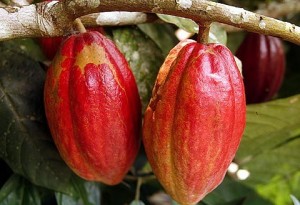Ghana could lose 90% of cocoa – Researchers warn
 Ghana is bound to lose at least 90 per cent of her cocoa and a large percentage of other crops if efforts are not made to save the dwindling population of crop pollinators, especially bees.
Ghana is bound to lose at least 90 per cent of her cocoa and a large percentage of other crops if efforts are not made to save the dwindling population of crop pollinators, especially bees.
Bees have been known to be the major agents of pollination globally and are responsible for at least 95 per cent of this activity in the process of fertilisation in plants.
However as critical as their role is in ensuring food security, sustainable livelihoods and quality nutrition of humans among other things, their colonies are being destroyed by negative human activities such as illegal logging, mining, agricultural activities, overuse of pesticides and deforestation.
The issue, has received global attention following the decline in bee population in Europe and America and reduced crop yields, necessitating the Convention on Biological Diversity to mandate the Food and Agricultural Organisation, to facilitate and coordinate the conservation and sustainable use of pollinators in seven countries.
The countries include Ghana, Brazil, India, Kenya, Nepal, Pakistan and South Africa where the Global Pollination Projects are expected consider issues such as the values of pollinators and pollination to the world’s economy in terms of food security, food diversity, human nutrition, food prices as well as biodiversity conservation and utilisation.
Professor Peter Kwapong, Project Coordinator of the Global Pollination Project (GPP), Ghana, at a policy briefing workshop in Accra on Tuesday called on the public to stop killing bees through their negative actions and activities.
According to him the extinction of bees would mean low crop yields, poor quality of pollinator-dependent crops, dwindling family income, poor diets and lack of food security.
The workshop attracted representative from the ministries, civil society organisations, academia and other private institutions, discussed how to disseminate the findings of the GPP which focuses on conservation and management of pollinators for sustainable agriculture, through an ecosystem approach.
According to him there is currently a huge pollination deficit and a potential production loss due to lack of insect pollination, but the project which had been running since 2009, had succeeded in generating scientific knowledge on pollination of cocoa, mangoes and garden eggs and would end in December.
He said the outcome of a baseline study has also been documented and would provide the basis for policy formulation and decision making by government and relevant bodies, to ensure the security of these insects.
Prof Kwapong said awareness and public education is ongoing, and called for inter-ministerial collaboration in dealing with the situation to mitigate the impact of climate change on agriculture.
Dr Alfred Oteng-Yeboah, a Lecturer at the Department of Botany of the University of Ghana, said there is the need for the implementation of the findings of the project and the institution of stringent measures to halt environmental destruction.
He also advised against frequent mass straying exercises for agricultural purposes, saying it destroys good soil organisms leading to low crop yields, pollution of water bodies, desertification, drought, flooding and other natural disasters.
Dr Oteng-Yeboah urged government to intensify enforcement of laws that secure the environment to ensure sustainability of the gains made under the project.
Source: GNA
